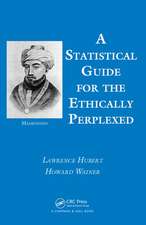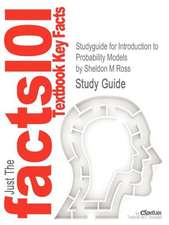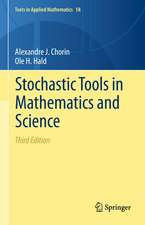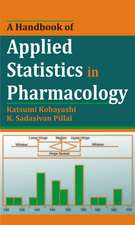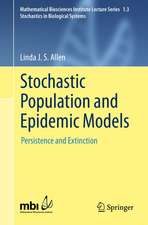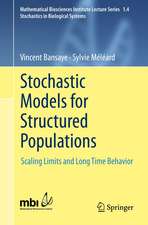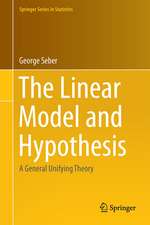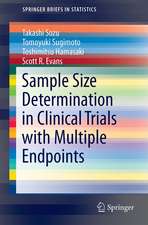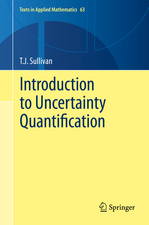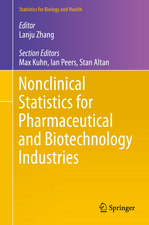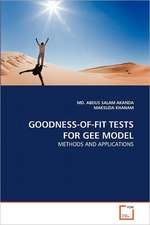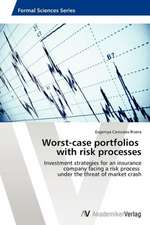Uncertainty: The Soul of Modeling, Probability & Statistics
Autor William Briggsen Limba Engleză Hardback – 8 iul 2016
This book presents a philosophical approach to probability and probabilistic thinking, considering the underpinnings of probabilistic reasoning and modeling, which effectively underlie everything in data science. The ultimate goal is to call into question many standard tenets and lay the philosophical and probabilistic groundwork and infrastructure for statistical modeling. It is the first book devoted to the philosophy of data aimed at working scientists and calls for a new consideration in the practice of probability and statistics to eliminate what has been referred to as the "Cult of Statistical Significance."
Its jargon-free approach asserts that standard methods, such as out-of-the-box regression, cannot help in discovering cause. This new way of looking at uncertainty ties together disparate fields — probability, physics, biology, the “soft” sciences, computer science — because each aims at discovering cause (of effects). It broadens the understanding beyond frequentist and Bayesian methods to propose a Third Way of modeling.
| Toate formatele și edițiile | Preț | Express |
|---|---|---|
| Paperback (1) | 666.68 lei 6-8 săpt. | |
| Springer International Publishing – 30 mai 2018 | 666.68 lei 6-8 săpt. | |
| Hardback (1) | 878.07 lei 6-8 săpt. | |
| Springer International Publishing – 8 iul 2016 | 878.07 lei 6-8 săpt. |
Preț: 878.07 lei
Preț vechi: 1033.03 lei
-15% Nou
Puncte Express: 1317
Preț estimativ în valută:
168.10€ • 175.39$ • 140.91£
168.10€ • 175.39$ • 140.91£
Carte tipărită la comandă
Livrare economică 12-26 martie
Preluare comenzi: 021 569.72.76
Specificații
ISBN-13: 9783319397559
ISBN-10: 3319397559
Pagini: 256
Ilustrații: XIX, 258 p. 23 illus.
Dimensiuni: 155 x 235 x 18 mm
Greutate: 5.44 kg
Ediția:1st ed. 2016
Editura: Springer International Publishing
Colecția Springer
Locul publicării:Cham, Switzerland
ISBN-10: 3319397559
Pagini: 256
Ilustrații: XIX, 258 p. 23 illus.
Dimensiuni: 155 x 235 x 18 mm
Greutate: 5.44 kg
Ediția:1st ed. 2016
Editura: Springer International Publishing
Colecția Springer
Locul publicării:Cham, Switzerland
Cuprins
Truth, Argument, Realism.- Logic.- Induction and Intellection.- What Probability Is.- What Probability Is Not.- Chance and Randomness.- Causality.- Probability Models.- Statistical and Physical Models.- Modelling Goals, Strategies, and Mistakes.
Recenzii
“Briggs, an adjunct professor of statistics at Cornell University, cautions his readers to carefully examine the uncertain reliability of such conclusions when these tools are used. His challenging premises are thoroughly supported by philosophical explanations as to why these traditional approaches need to be questioned. … Briggs provides fully fleshed out reasoning, impressive support, precisely worded insight, and graphical illustrations, as appropriate, to justify his stand. … Summing Up: Recommended. Upper-division undergraduates and above; faculty and professionals.” (N. W. Schillow, Choice, Vol. 54 (6), February, 2017)
“This is a book about probability and probabilistic reasoning. It is more philosophy than mathematics, but it does have mathematical content and it relies in some measure on mathematical reasoning. … This book is worth a look by anyone who teaches probability and statistics.” (William J. Satzer, MAA Reviews, August, 2016)
“[This book] is not for sissies, true, but its clear-headed (i.e., Aristotelian) approach to the subject of truth (which, in the end, is what exercises in probability and statistical analysis are all about, notwithstanding what they tell you in school) is refreshing: a long, cool drink of plain speaking about intellectual topics that, in these hot and humid days, is as enlivening as it is enlightening.” (Roger Kimball, The New Criterion's Critic's Notebook, newcriterion.com, August, 2016)
“This book has the potential to turn the world of evidence-based medicine upside down. It boldly asserts that with regard to everything having to do with evidence, we’re doing it all wrong: probability, statistics, causality, modeling, deciding, communicating—everything. … the book is full of humor and a delight to read and re-read.” (Jane M. Orient, Journal of American Physicians and Surgeons, Vol. 21 (3), 2016)
“This is a book about probability and probabilistic reasoning. It is more philosophy than mathematics, but it does have mathematical content and it relies in some measure on mathematical reasoning. … This book is worth a look by anyone who teaches probability and statistics.” (William J. Satzer, MAA Reviews, August, 2016)
“[This book] is not for sissies, true, but its clear-headed (i.e., Aristotelian) approach to the subject of truth (which, in the end, is what exercises in probability and statistical analysis are all about, notwithstanding what they tell you in school) is refreshing: a long, cool drink of plain speaking about intellectual topics that, in these hot and humid days, is as enlivening as it is enlightening.” (Roger Kimball, The New Criterion's Critic's Notebook, newcriterion.com, August, 2016)
“This book has the potential to turn the world of evidence-based medicine upside down. It boldly asserts that with regard to everything having to do with evidence, we’re doing it all wrong: probability, statistics, causality, modeling, deciding, communicating—everything. … the book is full of humor and a delight to read and re-read.” (Jane M. Orient, Journal of American Physicians and Surgeons, Vol. 21 (3), 2016)
Notă biografică
William M. Briggs, PhD, is Adjunct Professor of Statistics at Cornell University. Having earned both his PhD in Statistics and MSc in Atmospheric Physics from Cornell University, he served as the editor of the American Meteorological Society journal and has published over 60 papers. He studies the philosophy of science, the use and misuses of uncertainty - from truth to modeling. Early in life, he began his career as a cryptologist for the Air Force, then slipped into weather and climate forecasting, and later matured into an epistemologist. Currently, he has a popular, long-running blog on the subjects written about here, with about 70,000 - 90,000 monthly readers.
Textul de pe ultima copertă
This book presents a philosophical approach to probability and probabilistic thinking, considering the underpinnings of probabilistic reasoning and modeling, which effectively underlie everything in data science. The ultimate goal is to call into question many standard tenets and lay the philosophical and probabilistic groundwork and infrastructure for statistical modeling. It is the first book devoted to the philosophy of data aimed at working scientists and calls for a new consideration in the practice of probability and statistics to eliminate what has been referred to as the "Cult of Statistical Significance".
The book explains the philosophy of these ideas and not the mathematics, though there are a handful of mathematical examples. The topics are logically laid out, starting with basic philosophy as related to probability, statistics, and science, and stepping through the key probabilistic ideas and concepts, and ending with statistical models.
Its jargon-free approach asserts that standard methods, such as out-of-the-box regression, cannot help in discovering cause. This new way of looking at uncertainty ties together disparate fields — probability, physics, biology, the “soft” sciences, computer science — because each aims at discovering cause (of effects). It broadens the understanding beyond frequentist and Bayesian methods to propose a Third Way of modeling.
The book explains the philosophy of these ideas and not the mathematics, though there are a handful of mathematical examples. The topics are logically laid out, starting with basic philosophy as related to probability, statistics, and science, and stepping through the key probabilistic ideas and concepts, and ending with statistical models.
Its jargon-free approach asserts that standard methods, such as out-of-the-box regression, cannot help in discovering cause. This new way of looking at uncertainty ties together disparate fields — probability, physics, biology, the “soft” sciences, computer science — because each aims at discovering cause (of effects). It broadens the understanding beyond frequentist and Bayesian methods to propose a Third Way of modeling.
- Presents a complete argument showing why probability should be treated as a part of logic
- Broadens understanding beyond frequentist and Bayesian methods, proposing a Third Way of modeling
- Proposes that p-values should die, and along with them, hypothesis testing
Caracteristici
Presents a complete argument showing why probability should be treated as a part of logic Broadens understanding beyond frequentist and Bayesian methods, proposing a Third Way of modeling Proposes that p-values should die, and along with them, hypothesis testing


